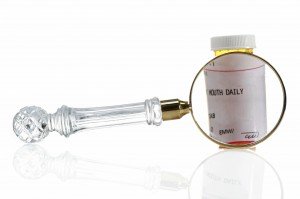
India capitalizes on pharmacovigilance
Demand in emerging markets is opening up newer opportunities across various sectors and life sciences companies have several compelling reasons to build their presence in these markets.
Emerging market countries are set to add 1.4 billion people to their middle classes during the next decade and will account for more than 60 percent of global gross domestic product growth between 2010 and 2016. Multi-national companies expect about 70 percent of world growth over the next five years to come from emerging markets. India and China will account for 40 percent of this.
In industries, such as life sciences where scale is important, the potential volume of emerging markets is essential to recover fixed costs and achieve competitive scale. Emerging market multi-nationals are themselves powerhouses of innovation, when it comes to developing new products for, and are beginning to compete strongly in developed markets as well. Western companies would do well to establish a "listening post" in the markets where these new contenders operate.
India is the second most-preferred destination for clinical trials in the emerging markets and seems to be focusing on drug safety management. So far, in India there are approximately 30 pharmacovigilance centers, but this number will touch 100 in the next one year, according to a member of the central government's pharmacovigilance committee.
Indian companies are positioned well to reach the performance bar set by current global players. And in India, this implies partcularly to two groups, the contract research organizations (CROs) and the traditional business process outsourcing organizations (BPOs), which offer pharmacovigilance services.
Companies from the two groups differ in background, scope, scale and global footprint. CROs are well-versed in managing drug development through all stages and have an established history of working with pharmaceutical companies. BPOs are better equipped to handle professional services at a larger scale and breadth. Therefore, they are in much stronger position to ramp up operations if required by global accounts. New business models are fast developing as Indian companies organize themselves to meet clients' operational scale and scope of requirements.
This means pharmacovigilance is expanding in India in a big way now and that this is evident to from several developments. In September 2010, Accenture reportedly partnered with Institute of Clinical Research in India (ICRI) to jointly develop a pharmacovigilance and clinical research program for the Indian market. Accenture had earlier signed a $550 million deal with pharma major Bristol-Mysers Squibb.
Wipro Technologies launched Wipro Clinical Collaboration Portal to reportedly help drug development owners, clinical research organizations and regulators to improve collaboration for multi-region clinical trials.
iGate Clinical Research International, formerly a subsidiary of iGate Corporation, is now considered a premier clinical trial management company. TCS describes itself as a leading clinical research and drug development service provider in India. It serves a range of global pharma firms and has on board healthcare professionals, doctors and PhDs in life sciences and pharmacology.
Also, Genpact boasts of over 500 personnel shouldering its clinical data intelligence service and Cognizant has recently become a preferred partner with Novartis and AstraZeneca for data management services. Cognizant's website details clinical research services on offer that range from epidemiology study to forecasting expected volumes of patients for clinical trials. Industry experts say that pharmacovigilance and clinical data management sectors are growing at a feverish pace with some pegging the growth rate at a whopping 100 percent.
Meanwhile, today's zero-tolerance drug safety environment requires pharma and CRO firms to adopt new strategies to quickly identify health safety concerns. They need more progressive thinking and business-IT models to address ever-evolving issues such as new compliance requirements for risk management, pressure to cut drug discovery costs, maintaining uniformity and consistency across global pharmacovigilance processes and integrating safety data from disparate sources
Approaching pharmacovigilance as an enterprise-wide business strategy is still not the norm but is quickly becoming so. Life science companies that embrace this shift will be able to meet near-term demands for drug safety assurances from a range of global stakeholders. Most approved products are subjected to risk mitigation plans of some sort.
Simultaneously, life sciences companies are staking out a competitive advantage in the form of more and better data used intelligently to help evaluate and direct future clinical development and for post-marketing evaluation of comparator products. The net impact will be that life sciences companies will be in a better position to deliver the higher quality, lower cost products that the market requires and deliver ultimately better quality of life to the patients.




